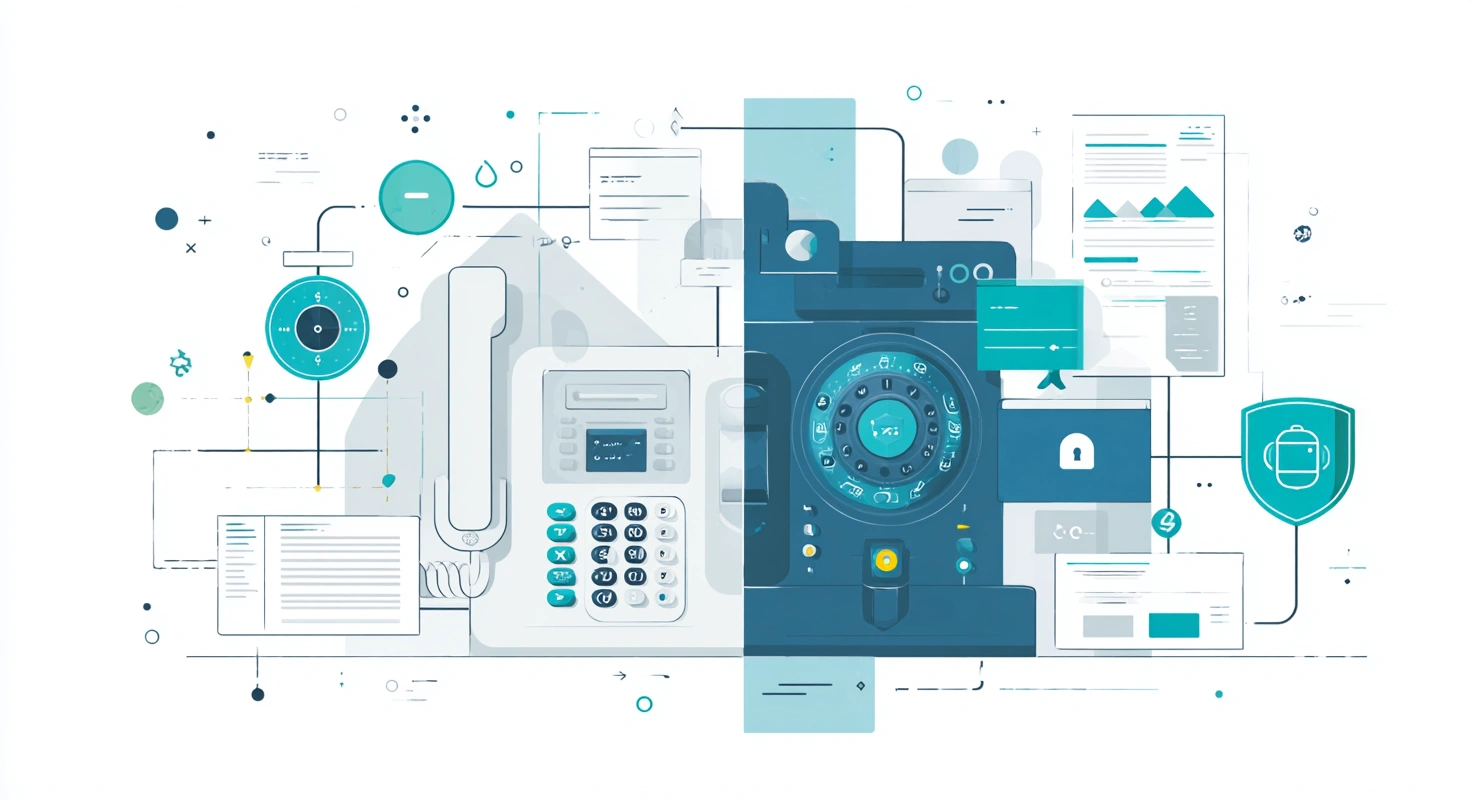Understanding churn, particularly agent churn, is pivotal for operational efficiency and the overall success of contact centers. But what is a churn, and why is it critical to manage it effectively?
Before discussing agent churn, it's essential to define churn. Churn refers to the rate customers or employees leave a service or a company within a given period. It's a metric that reflects dissatisfaction or a desire for change.
In the context of contact centers, while customer churn is often discussed, agent churn is equally significant yet sometimes overlooked.
This blog explores what is a churn, explicitly focusing on agent churn, and outlines strategic approaches to mitigate its impact on your contact center.
Adopt Convin’s proven strategies to minimize agent churn and maximize satisfaction.
What is Agent Churn?
Agent churn, a specific type of employee turnover, occurs when agents leave a contact center. High agent churn rates can signal underlying organizational issues, such as job dissatisfaction, inadequate support, or poor working conditions.
To understand the broader impacts of agent churn, it's crucial to understand what a churn customer is and what a churn risk is. Churn can lead to deteriorated customer service and increased operational costs.

What is a Churn Rate, and Why is It Important?
The churn rate is a metric that measures the percentage of customers or employees who leave a company or service over a specific period. It's a critical indicator of satisfaction, engagement, and overall success.
For businesses, a high churn rate can signal problems with customer satisfaction, product quality, or employee engagement, leading to increased costs and lost revenue. Conversely, a low churn rate suggests strong customer loyalty or employee satisfaction.
Monitoring and managing churn rates helps companies identify and address underlying issues, improve retention, and enhance long-term growth and stability.
A churn model is a predictive tool that identifies the likelihood of customers or employees leaving. In agent churn, such models can analyze factors like work environment, compensation, and job satisfaction to predict turnover risks.
By understanding what a churn model is and applying it effectively, contact centers can proactively address factors contributing to high turnover rates.
The Top 5 Reasons for Agent Churn
Agent churn in contact centers can be attributed to various factors, each impacting employee satisfaction and retention differently.
Let's explore five critical reasons for agent churn and provide practical solutions to address these issues:
1. Lack of Career Advancement Opportunities
Reason: Agents often leave when their career stagnates, with no clear path for advancement or skill development.
Solution: Create clear career paths for agents and offer professional development opportunities. Regular training sessions, skill enhancement programs, and clear, achievable promotion criteria can motivate agents to stay and grow within the organization.
2. Inadequate Compensation and Benefits
Reason: Compensation is a primary factor in job satisfaction. If agents believe they are not being paid fairly or their benefits package is lacking compared to industry standards, they might look for opportunities elsewhere.
Solution: Ensure your compensation packages are competitive within the industry. Regularly review and adjust salaries and benefits to reflect market standards and the agents' experience and performance levels.
3. Poor Management and Lack of Support
Reason: Management style and the level of support provided can significantly affect agent satisfaction. Poor communication, a lack of recognition, and inadequate support can lead to undervaluation and burnout.
Solution: Train managers to be leaders who can effectively communicate, recognize achievements, and provide the necessary support. Encouraging a supportive and inclusive culture where agents feel valued and heard can greatly reduce churn.
4. Workplace Stress and Burnout
Reason: The demanding nature of call center work can lead to high-stress levels and burnout, mainly if agents deal with difficult calls, high expectations, and inadequate breaks.
Solution: Implement strategies to manage and distribute workload effectively, ensuring agents have adequate breaks and are not constantly overloaded with high-stress interactions. Providing resources for stress management and promoting a healthy work-life balance can also be beneficial.
5. Lack of Engagement and Recognition
Reason: Agents may feel disconnected and unengaged if their efforts are not recognized or if they feel like just another number in the organization.
Solution: Foster a culture of recognition and engagement. Implement programs that regularly acknowledge and reward agents' efforts and achievements. Engage agents in decision-making processes and encourage feedback to make them feel like an integral part of the organization.
Addressing these factors with thoughtful strategies can significantly reduce agent churn, leading to a more stable, satisfied, and engaged workforce in your contact center.
This blog is just the start.
Unlock the power of Convin’s AI with a live demo.

Practical Strategies to Prevent Agent Churn
To prevent agent churn, regular training and career development opportunities should be implemented to enhance job satisfaction and foster a supportive work environment where feedback is valued, and agents' well-being is prioritized.
- Enhance Job Satisfaction: Ensure agents have a clear career path, receive adequate training, and have access to the tools they need to succeed. Recognizing and rewarding their efforts can also boost morale and retention.
- Improved Work Environment: A positive and supportive work environment can significantly reduce churn. This includes fostering a culture of respect, providing feedback, and ensuring that agents feel valued and heard.
- Offer Competitive Compensation: Fair and competitive wages and benefits can help retain talent. Regularly reviewing and adjusting compensation structures is key to staying competitive.
- Implement Feedback Mechanisms: Regularly gathering and acting on agent feedback demonstrates that their opinions matter, helping to address potential issues before they lead to churn.
- Utilize Churn Models: Implementing predictive analytics can help identify at-risk agents early, allowing management to intervene with targeted retention strategies.
Focus on Leadership and Management Training: Effective leadership minimizes churn. Training managers to support their teams, recognize their efforts, and address their concerns can lead to a more stable workforce.

Transforming Challenges Into Opportunities with Convin
Convin, a conversation intelligence platform, helps reduce agent churn rates by providing actionable insights and tools that enhance the overall agent experience and workplace satisfaction.
- Feedback and Coaching: Convin analyzes customer interactions to provide targeted feedback and coaching to agents. By identifying areas of improvement and strengths, agents can feel more supported and valued, which enhances job satisfaction and reduces turnover.
- Performance Recognition: The platform can highlight agents' successes and contributions, fostering a culture of recognition and appreciation. Recognizing agents' efforts can significantly improve morale and reduce churn.
- Skill Development: Convin offers insights into specific skills or knowledge areas where agents can improve, facilitating personalized skill development. Investing in agents' professional growth can increase their loyalty to the company.
- Reducing Burnout: By streamlining workflows and providing agents with actionable insights, Convin can help reduce the stress and burnout associated with high-volume or challenging customer interactions, improving overall job satisfaction.
- Enhancing Engagement: The platform's analytics can help managers understand agent engagement levels and pinpoint factors that may contribute to disengagement or turnover, allowing for proactive measures to enhance engagement.
- Empowering Agents: By offering data-driven insights, Convin allows agents to make informed decisions, fostering a sense of autonomy and job satisfaction.

Implementing a platform like Convin can address critical factors contributing to agent churn, creating a more supportive, engaging, and rewarding work environment.
Convin's platform can improve agent satisfaction, retention, and customer service quality by enhancing the work experience, offering personalized growth opportunities, and fostering a supportive culture.
Exploring Convin's capabilities could be a turning point if you want to transform your contact center's operational dynamics and reduce agent churn.
Witness how Convin's conversation intelligence platform can revolutionize your agent management and customer satisfaction approach. Schedule a demo today to discover the power of Convin to reduce agent churn and boost your contact center's performance.
FAQs
1. What is a churn?
Churn refers to the rate customers or employees leave a service or company over a specific period.
2. What is customer churn, and how do you prevent it?
Customer churn is when customers stop doing business with a company; it can be prevented by improving customer satisfaction and loyalty.
3. How do you save customers from churning?
Save customers from churning by addressing their concerns, providing exceptional service, and offering incentives or improvements based on feedback.
4. What is the churn process?
The churn process involves identifying the rate and reasons why customers or employees disengage and leave a company or service.
5. Who is responsible for customer churn?
While it can vary, typically, customer service, sales, and marketing teams are collectively responsible for addressing and reducing customer churn.
6. Why is preventing churn important?
Preventing churn is crucial for maintaining revenue, reducing acquisition costs, and improving a business's health and reputation.









.avif)